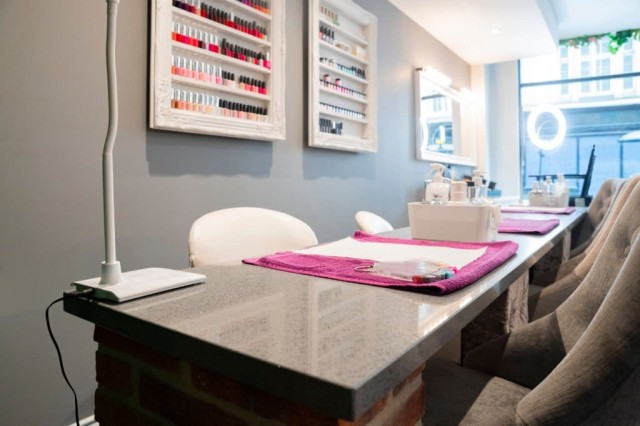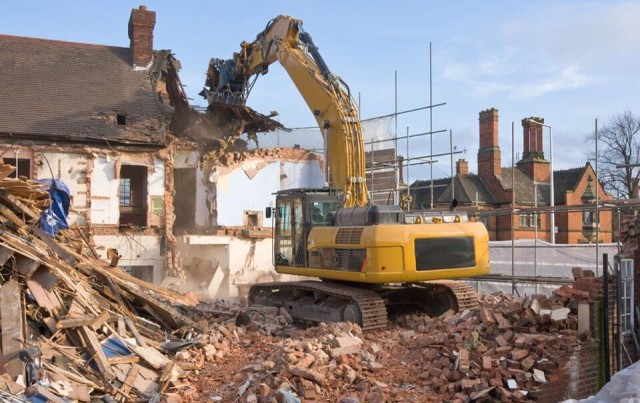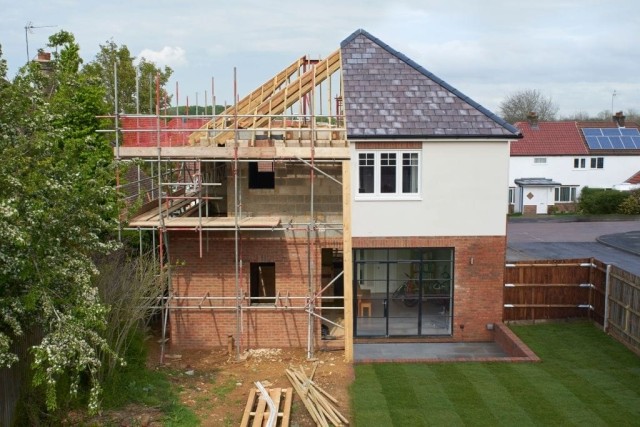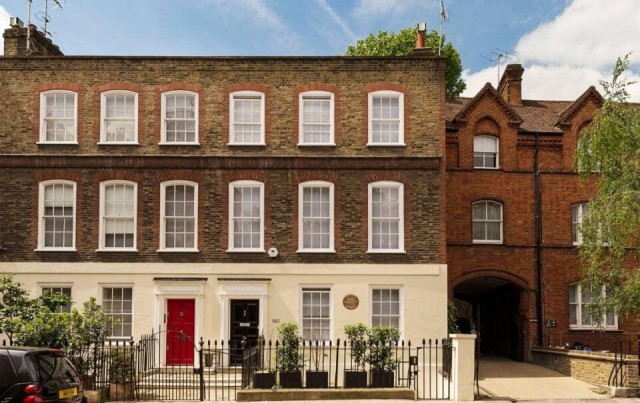Read next
The latest news, updates and expert views for ambitious, high-achieving and purpose-driven homeowners and property entrepreneurs.


Property renovation can be an attractive proposition to many and for good reason! Being a developer in London can be extremely rewarding and it can allow you jump one, two or even three rungs up the ladder in one go.
There are many accounts online consisting of people who have taken the plunge and made a killing by buying a property in need of renovation for a relatively low price, doing it up and then reaping the benefits.
Now, the good news is that this opportunity is available to anyone with the ‘oomph’ to get their hands dirty, as the premise is a relatively simple one.
However, it does require a healthy dose of patience, hard work and resolve to make a real success of it, as well as a fair amount of luck.
So, if you’re considering getting into property renovation, there is a lot to think on to avoid becoming one of those not-so-well-publicised people who lose everything in their attempts to flourish. ‘How can I avoid this?’ you may ask.
Well let me explain the whys and wherefores of doing the best preparation you can to ensure that your career in property renovation is a successful one.
Think about this: The most important aspect to get right is to determine how financially viable the project is overall. In short, you have to ask yourself, how you are going to raise the funds you need to meet:
Now, I know these may seem like fairly obvious things to consider for most people, but you’d be surprised how often this isn’t the case.
A contingency of around 20-30% to work into your sums is advisable, as there might be issues you don’t or even can’t anticipate before they happen.
If you’re someone who sees themselves as a bit ‘handy’ and feels that you can do the renovation yourself, then all well and good. However if you’re not (like most), then you need to find out from your friendly neighbourhood builder just how much the renovations will cost.
This is particularly true if the renovations you’re planning involve major works, such as removing walls, and so on.
Remember, you’re in the driving seat, so there is no need to be afraid of getting several quotes and playing contractors off each other to get the best price.
Believe me, don’t just accept the first quote you’re given, as your bank manager will certainly not thank you, so just exercise your consumer rights and nail down a great deal for yourself.
Another thing you need to factor into your property renovation calculations are the additional fees that you’ll be paying when you buy and indeed sell your completed project. These extra administrative costs involved include:
The list of hidden costs in buying and selling a property is a long one, and the items listed here by no means cover them all. If you’re not sure about whether you’ve calculated everything possible, it’s a good idea to talk to your solicitor or local property specialist to check.
Once you’ve found the perfect property renovation project, it’s vital that you get all of your financing agreed before you start. This can tip the balance in your favour when it comes to the whole buying process.
Estate agents and vendors will take your offer that much more seriously if you can tell them that everything is all agreed and ready to go when they are.
An important note to consider: If you approach the vendor or estate agent half-sure and start saying things like ‘I’m getting the mortgage side of things sorted now’, you could sow a seed of doubt in the seller’s mind, leading them to sell to someone else they see as more serious and ready to go forward.
The world of property, especially in London, is cut-throat, and you wouldn’t want to lose out on what could be the ideal property because of something like bad preparation, which can be so easily avoided. Remember there are plenty of steps in this process to trip you up, so avoid derailing your progress!
There is a common misconception in the property game that the national housing market moves as one, with a single set of conditions. The truth is that there are really hundreds of ‘micro-markets’, all with their own set of characteristics.
When you’re looking for a renovation property to invest in, you need to put yourself in your potential buyer’s place and think, ‘how attractive is it as a home?’, ‘how attractive is the location?’, and so on.
For this reason, it’s important that you get a grasp of the market conditions of the general locale you’re considering buying in. This can include things like price (of course), council tax rates and local facilities that are going to attract buyers when you’re looking to sell. By doing your research, perhaps over an extended period, you’ll be sure to gain a vital insight into all the facts you need to nail down.
However, if you find it difficult to physically visit the area on a regular basis, there quite a few online resources you can use to track prices, such as Zoopla. A phone call or two to some local estate agents is a must too, and they might be able to give you the lowdown on their own patch if they can smell business.
The more preparatory work you do before you invest in a property renovation, the better position you’ll be in to avoid unexpected issues further down the line that risk turning your renovation dream into something far more stressful.
As we mentioned before, begin this process by finding the general location or suburb you’re going to be looking for properties in. Follow this up with a search through the available stock for homes that are likely to be the most best-performing properties on the market.
Now, this could include a variety of different types of housing, such as detached houses, terraced properties or even flats - if the property fits the bill for local market demands, then you should consider it.
The first number to consider is time. Finding exactly the right property to meet your needs involves a good deal of legwork over a number of weeks to do the job properly. Renovation experts advise that the process should take around 12 weeks to complete and should take in up to as many as 100 different properties.
It’s too easy to feel like you’ve done your homework if you find a property you think fits the bill in the first few attempts. Don’t forget that you should still carry on and keep researching, or you may end up regretting your choice at some point in the future.
The other numbers you need to focus on are the sums that determine whether the project is going to be profitable or not. It’s pretty straightforward. So, there’s a simple equation of buying price + renovation costs + profits = ultimate selling price.
Now, if the sums don’t add up and the price you’re going to have to sell it for to make a profit is too high, then move on and find a property that makes the arithmetic work.
Now you should have an idea of how important factoring in ALL your costs is, given that you’re making this effort to make money.
Let’s be honest, as a nation we don’t do bartering for most things, but if you want to increase your chances of lasting success in the renovation game, you’ll need to negotiate with both estate agents and vendors. Every pound you save or, indeed, lose comes off your bottom line, so saving small amounts here and there is ideal.
When negotiating the asking price, if you’ve done your homework you’ll know what your haggling points are. There could be things in the property that you will need to address if you are going to renovate, so you could say: ‘I’d meet the asking price, but I’ll need to sort out “a” or fix “b”. Knock the cost of that off, and you’ve got a deal’.
This could, of course, be seen as a risky strategy, especially if you’re keen on the property, but think of it like this: the worst they can say is ‘no’ and if they say ‘yes’, then you’ve just saved a bundle!
Once you’ve narrowed down your search to a few choice picks, it’s time to start getting to the nitty-gritty that makes the difference between a potential 'des res' and a crumbling shack to be given a wide berth.
Nevertheless, before you put your name to anything, you must do your property renovation due diligence, involving a number of inspections of the home you’re looking to invest in.
Building surveys will uncover a range of issues that your intended purchase might have wrong with it, and there are a few types that will apply in certain specific circumstances.
The first level of a survey is known as a Homebuyer Report (or a HomeBuyer Survey) . It's the most suitable option when the property in question is in a relatively good state, and in the same structural condition as when built.
During this type of survey, the surveyor will likely only inspect the areas that are easily viewable. The HomeBuyer Report was the replacement for the outgoing HSV in the spring of 2010, but it is still (wrongly) referred to as the Homebuyer Survey.
For your information, what this survey does is point out any major issues that could affect the value of the property, but it’s worth mentioning that it doesn't test the building’s services (plumbing, electrics etc).
Also often referred to as a structural survey, the building survey is a holistic view of the entire property, including inspections of every facet of its structure. This includes things that are both visible and not, and is highly advisable if the building is either old has been altered since it was built.
In addition to the easily viewed areas, a building survey will check for things that will compromise a building structure, like dry rot, damp and pest infestation. It will even factor in things like any large trees that could potentially cause issues.
This is the de facto 2nd tier of building inspections and one for established properties of a certain age.
When you find a ‘fixer upper’ that you see as a potential money spinner, the full structural survey is a real necessity. The same goes for properties that have had major modifications done to them. Until this is done, you’re not going to get a clear picture of what you’re getting yourself into.
Nobody’s going to force you to go for a building survey and in some cases, it won’t really be necessary, especially if it’s a fairly new home. But, if you have any misgivings, then it’s a very prudent move. Better a few hundred pounds now than tens of thousands later and a home you can’t sell on.
If you're employing contractors to perform your renovation, you’ll have to give some thought to how it’s going to be managed. Renovating can be done part-time (alongside a full-time job) or all-in; regardless, the renovation will need to be managed properly, and many people decide to employ a project manager to keep on top of things.
Of course, the right workmen are going to be vital to making sure that all this happens.
We’ll be honest here. From our experience, best practice in this case would be to let your architect identify and find your potential builders, invite them to tender and assess them before starting your project.
Another idea (with the attendant risks, obviously) is to source the expertise you need from sources like www.checkatrade.com. As before, get several quotes to ensure you’re getting a competitive one.
Whatever your approach, keep on top of things and check in with your project manager regularly. Remember to keep copies of every bit of paperwork associated with the project so that you can manage the budget effectively. In addition, tracking your expenses is vital, as spending can spiral out of control in no time on a renovation project if you’re not paying attention.
Being a serial property renovator can be a rewarding but ultimately, fairly stressful life. There’s the fact that you might need to move every few years. Also, if luck goes against you, things can be a little fraught on occasion when cash flow gets tight.
But, for the driven person with their eye on the ultimate prize, it’s a manageable situation that can be overcome. There are, however, plenty of instances to show that sometimes blind faith can be unhelpful, so make sure you know what you’re getting into before you actually do.
We think that the right mix of ambition and caution is key to do doing well here; ‘fortune favours the brave’ and ‘better safe than sorry’ in property renovation are equally relevant mantras here. As you become more experienced, you'll start to know the difference between a project that's worth your time, and one that isn't.
Property renovation in London is an exciting and potentially lucrative profession, as hundreds of self-made UK property millionaires will tell you. Their success, however, wasn’t just based on being in the right place at the right time. Successful property entrepreneurs will factor in everything mentioned above and more to ensure that their projects make them money.
In this game you can’t just wing it and hope for the best, as this will likely not pan out if you don’t cross your ‘T’s and dot your ‘I’s. As we’ve said, here the devil really is in the detail, and the more prepared you are for every possible eventuality, the less likely it is that anything will catch you out and leave you stuck.
To summarise, the Golden Rules for property renovation are:
Follow these simple rules and you’ll likely have more renovation successes than failures. We wish you all the best in your endeavours and we hope our advice helps you fulfil your property renovation dreams!

Urbanist Architecture’s founder and managing director, Ufuk Bahar BA(Hons), MA, takes personal charge of our larger projects, focusing particularly on Green Belt developments, new-build flats and housing, and high-end full refurbishments.
We look forward to learning how we can help you. Simply fill in the form below and someone on our team will respond to you at the earliest opportunity.
The latest news, updates and expert views for ambitious, high-achieving and purpose-driven homeowners and property entrepreneurs.
The latest news, updates and expert views for ambitious, high-achieving and purpose-driven homeowners and property entrepreneurs.










We specialise in crafting creative design and planning strategies to unlock the hidden potential of developments, secure planning permission and deliver imaginative projects on tricky sites
Write us a message